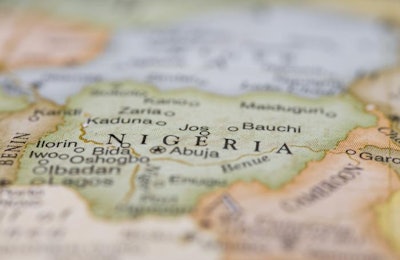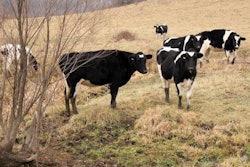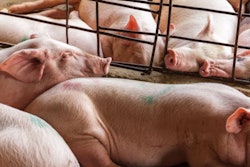
As part of the modernization Nigeria’s livestock industry, several states will remodel traditional grazing reserves into cattle ranches.
More than 400 grazing reserves have been identified under Nigeria’s National Livestock Transformation Plan (NLTP) to be turned into ranches, where cattle will be kept permanently, reports All Africa.
The reserves cover 3.4 million hectares (8.4 million acres) in the eastern and central states of Adamawa, Taraba, Plateau, Nasarawa, Benue and Kaduna, as well as in Zamfara in the northwest.
This latest step in the plan was announced by a senior official of the National Commission for Nomadic Education (NCNE) at a workshop on the development of the ranches last week.
Modernization of Nigeria’s livestock sector requires a paradigm shift in agriculture, he said. The predominantly extensive tradition of informal grazing needs to be transformed into a formal system of ranches for cattle rearing.
NCNE has already commissioned 17 model education centers to help fill the skills gap created by these changes, according to the official. Other key requirements for the success of the NLTP — including security, markets, clinics, livestock service centers, roads, milk and meat processing facilities — are being developed.
Reaction to the latest announcement over the creation of ranches appears to have been mixed, according to Punch. It reported officials from two of the affected states saying they were unaware of the plans in their respective states.
What is behind Nigeria’s livestock plan?
In September, the National Economic Council of Nigeria approved NGN100 billion (US$275 million) to launch the NLTP. Of the total sum, 80% will be provided as grants to selected states by the federal government, with the rest funded by the states.
Among the aims of the plan is to address a long-running crisis between farmers and herdsmen in different parts of the country, reported This Day Live.
With its six pillars, the NLTP also aimed to transform livestock production in the country by creating a market-oriented value chain, according to Chief David Umahi, Ebonyi state governor. At the launch of the plan, he said it would also ensure peace and justice.
“Council resolved today that there is need to look at the trans-human West African protocol. You cannot allow such movement of cattle without registration and monitoring,” said Umahi.
The National Executive had adopted the NLTP in January 2019. Participation is voluntary, according to the governor.
In October, the News Agency of Nigeria reported that 81 herdsmen had been prosecuted for violating the open grazing law in Benue state. About 3,000 cattle had been seized.
Calls for cross-border cooperation in West Africa
Nigerian experts have said the health of livestock and food safety would be improved if countries in the region collaborate, reported Business AM Live in November.
On animal health, biosecurity in the livestock farming ecosystem is vital to prevent the spread of diseases such as African swine fever, according to Kayode Ojeleye, a policy analyst in veterinary science.
Agricultural economist Professor Egri Ejembi called on the federal government to set up a nationwide system of animal health inspections. To prevent the spread of livestock diseases, inspections should target animals being moved around the country for fattening, he said.
According to Ejembi, there are few inspections of animals before slaughter, or of meat post-mortem.
Farmers should be encouraged to observe proper standards for livestock husbandry, he said, such as feeding and the disposal of farm wastes.
Ejembi also urged the authorities to support smaller farmers working together as cooperatives.
“What the government can do to make sure that we market our products in the international market is to promote the formation of a group of livestock farmers. That way, such group can access credits from the banks and, also, farmers should take advantage of the economy of scale,” he added.
Recent research shows that the productivity of dairy cows in Kenya improved when they were fed a high-quality native grass. As well as reducing the environmental impacts of milk production, feeding the Napier grass also preserved local woodland from damage by free-grazing cattle.

















